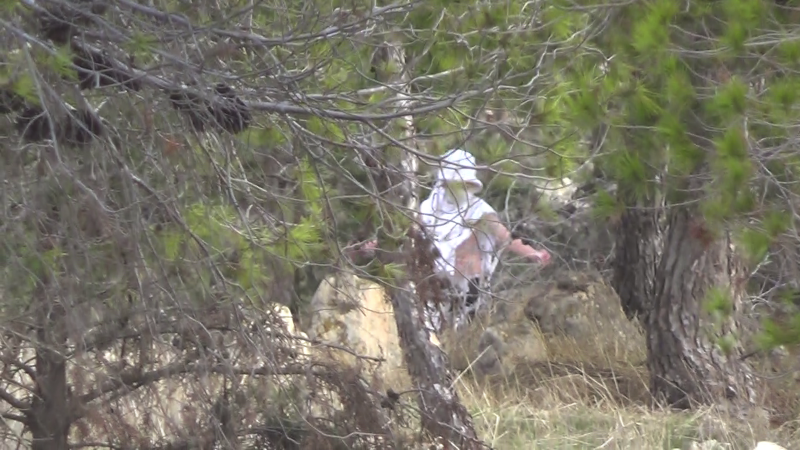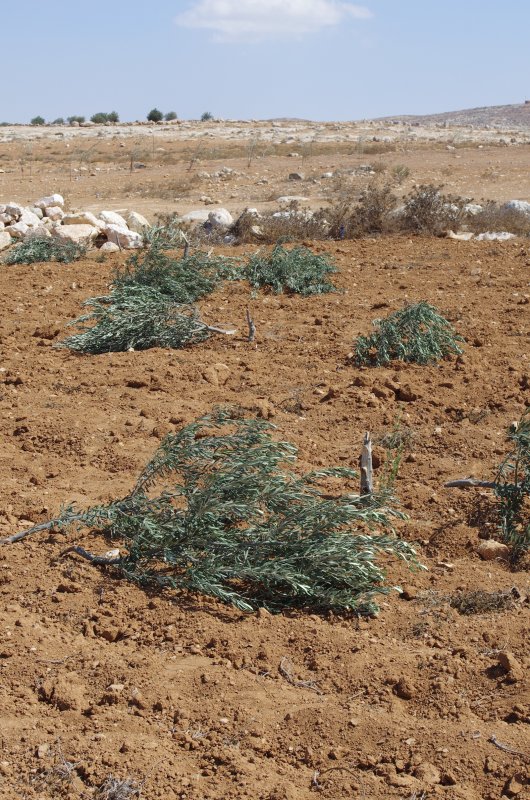Tag: South Hebron Hills
-
Settlers attacked member of the South Hebron Hills popular committee
30th December 2013 | Operation Dove | At Tuwani, Occupied Palestine On December 28, a group of settlers attacked Palestinians who were plowing a field in the South Hebron Hills village of At Tuwani. Hafez Huraini, a member of the South Hebron Hills Popular Committee (SHHPC), was injured in the attack. According to Huraini, at about 2.45…
-
South Hebron Hills’ outpost of Havat Ma’on continues to expand. Despite documentation, Israeli officials deny knowledge of expansion
11th November 2013 | Operation Dove | At Tuwani, Occupied Palestine The Israeli outpost of Havat Ma’on (Hill 833) in the West Bank’s South Hebron Hills is growing at a phenomenal rate since the beginning of October. On Saturday November 9, the activist group of Ta’ayush (an Arab and Jewish grassroots nonviolent movement) and international…
-
48 young olive trees destroyed in South Hebron Hills
4th October 2013 | International Solidarity Movement, Operation Dove | Qawawis, Occupied Palestine Yesterday morning, 3rd October, Palestinians discovered 48 olive trees destroyed alongside bypass road 317 near the South Hebron Hills area village of Qawawis. The olive tree grove belongs to Ali Shetat from Qawawis and had been planted six years ago. At 10…



